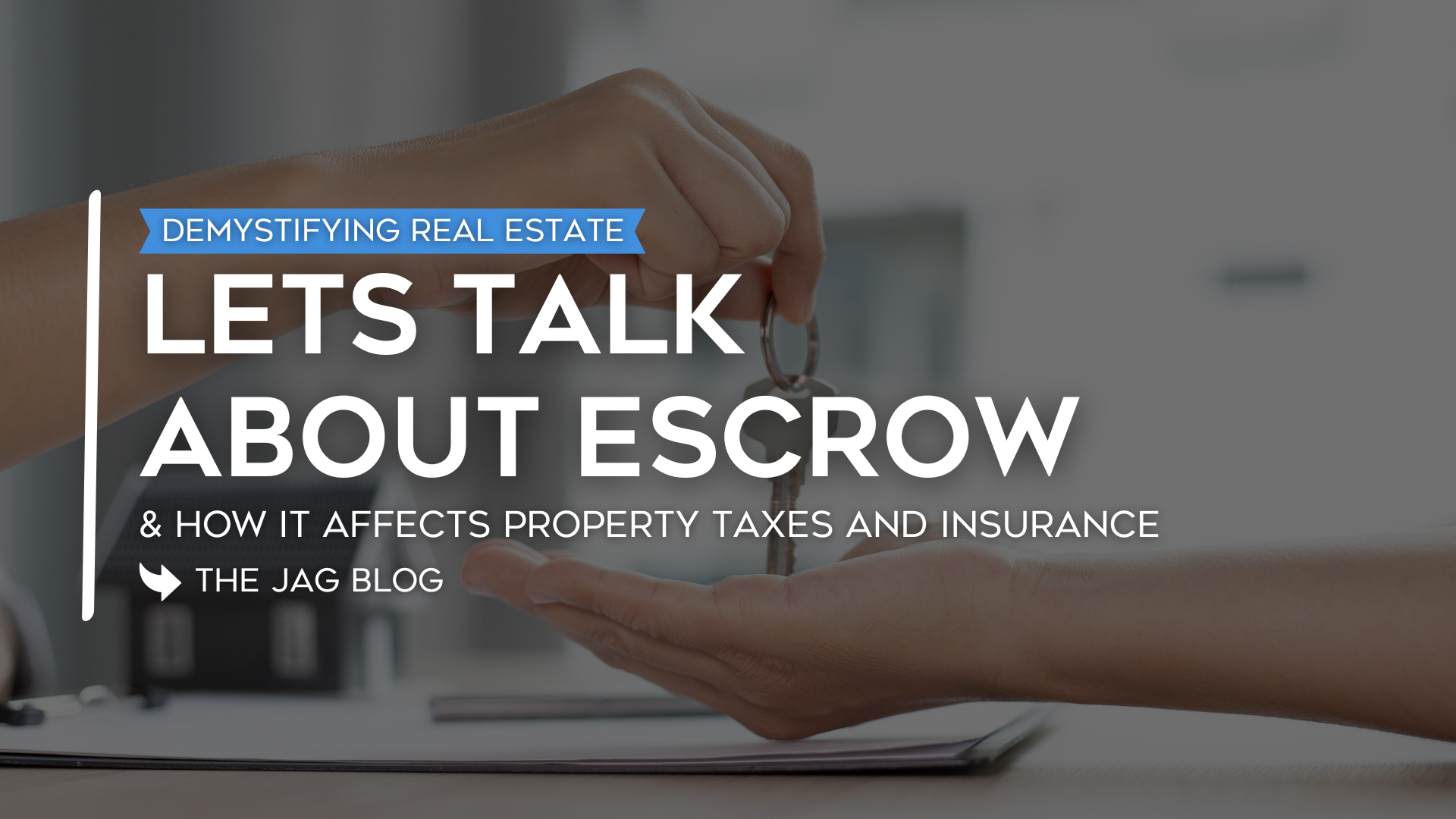Demystifying real estate: What is escrow?

For new home buyers, going through the process of buying a home can involve numerous terms that can be overwhelming as you try to navigate an unfamiliar process. That’s why having a knowledgeable team on your side is so important. One of those team members is your mortgage lender, who can help you better understand the ins and outs of your mortgage and what you need to know about where your money is going.
Kelly Donahue is a mortgage loan officer for Towne Mortgage of the Carolinas. One of the things some buyers may not fully understand is escrow.
The term escrow is used throughout the process
Donahue said there are two key reasons you may need an escrow account in real estate.
“The first, which is primarily what your lender is going to be speaking to you about, is to hold homeowners’ insurance and property taxes for the property that you’re looking to purchase,” she said. “Then the other part that escrow is used for is basically to protect the buyer’s due diligence money that goes into the transaction: earnest money, things like that.”
Before the purchase, and right after a buyer has made an offer that’s been accepted, an escrow account will be set up to hold funds as good faith deposits. “More than likely, it’s going to be an attorney who holds those funds,” Donahue said. “Once you go under contract and the sellers accept your offer, you have that money (saved for) whatever you agreed upon in that purchase contract. In North Carolina, we see due diligence funds — those funds go directly to the seller. And we can see earnest money, held by a third party, and that’s typically the closing attorney.”
Upon closing, the escrow accounts held as good faith deposits are closed and paid out to the seller. However, a second escrow account is used to hold property taxes and homeowners’ insurance, and it’s held by your mortgage servicer.
Your mortgage escrow account covers insurance and tax payments
“After you purchase your home, your escrow account will be established to pay your property taxes and your homeowners’ insurance,” Donahue said. She also explained that when you pay your monthly mortgage, a portion of your payment will be paid into escrow to cover homeowners’ insurance and property taxes. That portion would be one-twelfth of your annual premium. “Taxes and insurance are due every year. When that year comes up, that full premium is due for homeowners’ insurance and property taxes.”
She cautioned buyers to be aware that escrow will not cover Homeowners Association fees, which are paid separately by the buyer.
Prices can change each year, which affects your payments
Donahue said that changes in property taxes and insurance can affect your payments, but that buyers tend to have some protections from the moment they close on the home.
“We’ve padded your escrow account by collecting two to three months’ worth of extra payments to be held in escrow at closing,” she said. “There are some additional payments that we take as part of those closing costs, so if there are slight adjustments, we kind of have that balanced out already.”
Donahue said if property taxes rise beyond that padded amount, a buyer’s escrow may have to adjust, which means there are a couple of options to consider. “They can either pay a lump sum for the shortness that their escrow account is going to be when those property tax bills come due. Or they can amortize it by increasing your monthly mortgage payment, collecting that up front.” You will receive a notification from the county if your taxes increase, and your loan servicer will follow up with the adjustment breakdown.


Some buyers can opt out of escrow
Donahue said there are some instances where buyers can choose to cover insurance and taxes on their own. “If you have great credit and you are putting 20 percent or more down on a conventional loan, you can opt-out. You’re paying your own bills,” she said.
She explained it tends to depend on the loan type. FHA loans require buyers have an escrow account, for example. “VA is a little different,” she said. “Basically, if you put a 10 percent down payment or more for a VA loan, you could possibly eliminate the need for escrow.”
However, she said escrow accounts can be a great stress reducer because insurance and tax payments are high, lump sum bills. “An escrow account is great because it takes the pressure off of you,” she said. “Since you’re paying for taxes and insurance throughout the year, the payments are much more manageable when you break it down on a month-to-month basis versus paying thousands of dollars in the fall when property tax bills are due. When that bill comes due, you will pay that full amount.”
Escrow shows your lender the property has security
Donahue added that a major benefit of an escrow account is what it shows lenders about the investment they’ve made into you as a buyer. “We have a vested interest in making sure our clients pay their property taxes and homeowners’ insurance,” she said.
“If your bills don’t get paid, your home could be foreclosed on. Having an escrow account definitely helps, especially as a first-time home buyer. They’re going to have that escrow account set up for them as they’re getting used to having the full mortgage payment. By having an escrow account, it really just ensures that the loan and the bills get paid,” she said.
Escrow provides peace of mind
Your escrow account is meant to keep your money safe and available for major bills. If you have additional questions about escrow, leave a note in the comments below.
The Jim Allen Group provides access to information on this blog/website as a public service for educational purposes only. Although reasonable efforts have been made to ensure that all of the information made available is current, accurate, and complete…[read more]


